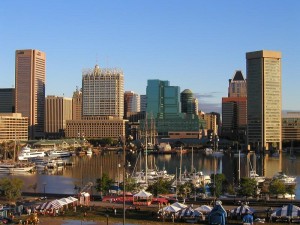 I don’t disagree with the assessment by Alec MacGillis at Slate that that rust-belt cities offer fine high culture opportunities at low prices: riches from the turn of the last century provided capital (physical, human, institutional) that created great organizations, that can, at least for the time being, survive on endowment funds and relatively low amounts of ‘earned income’. But my reaction is somewhat similar to the one I had reading Christopher Knight‘s recent piece arguing that museums ought to be ‘free’ – i.e. that the heavy costs of housing, maintaining, restoring, researching, acquiring and presenting art ought to be borne not by the people who actually come to the museum and view the art, but by someone else.
I don’t disagree with the assessment by Alec MacGillis at Slate that that rust-belt cities offer fine high culture opportunities at low prices: riches from the turn of the last century provided capital (physical, human, institutional) that created great organizations, that can, at least for the time being, survive on endowment funds and relatively low amounts of ‘earned income’. But my reaction is somewhat similar to the one I had reading Christopher Knight‘s recent piece arguing that museums ought to be ‘free’ – i.e. that the heavy costs of housing, maintaining, restoring, researching, acquiring and presenting art ought to be borne not by the people who actually come to the museum and view the art, but by someone else.
Elite art is overwhelmingly consumed by, well, the elites, in terms of higher education and income, and yet somehow the expense of maintaining these organizations is seen as something to be borne by taxpayers at large, or from donors past and present. I generally resist the calls often found in social media and blogs about the need for ‘new business models’ in the arts, but if the sentiment I am seeing is the current business model, then yes, eventually something new will be required. The Baltimore Symphony Orchestra can’t go on forever selling $3 beers and $15 tickets.

Organizations can’t sell deeply discounted tickets and survive unless society as a whole believes it benefits from the public subsidy of the high arts. Europeans believe that a subsidy of the arts benefits the common good while Americans don’t.
Is this correlated with the fact that Europeans have maintained the health of their urban environments while Americans have not? The number of people in Philadelphia living in deep poverty ($10,000 per year for a family of 3) is equal to the entire population of Salt Lake City. This includes 60,000 children who face daily problems with hunger. Detroit is in the process of bull dozing 40 square miles of the city because it was simply abandoned (mostly due to consciously created economic policies whose effects were predictable.) 50% of Detroit’s population is functionally illiterate. Almost the entire city of New Orleans was destroyed in an apocalyptic flood that could have been prevented. Measures were not taken because its largely poor, black population lacked political influence. The Baltimore Symphony is resident in an impoverished city. The orchestra is about 98% white in a city 80% black.
The market has failed our urban environments. And it has failed the arts. Is this something we should accept? Is there something we could learn from the Europeans and their public funding systems? Can everything be defined by its worth in dollars and cents?